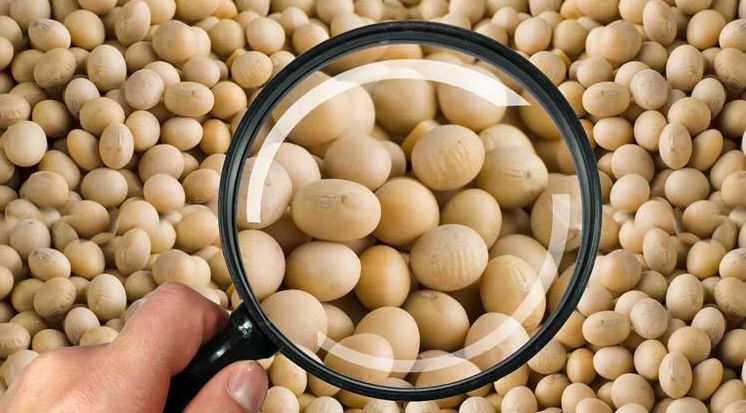Piracy of Soybean Seeds Causes Annual Losses of US$ 1.71 Billion in Brazil
Brazil
According to researchers from the Center for Advanced Studies in Applied Economics, while the agriculture commodities market operates in a structured manner, with strict classification and trading standards — such as for soybeans and sugar — the bioinputs sector still faces obstacles to establishing itself in an organized manner. This difficulty is due to the biological and innovative nature of these products, which have variable characteristics and require new approaches to price definition. (Cepea)
Soybean seed piracy causes losses of around US$ 1.71 billion per year in Brazil, considering factors such as the revenue the agricultural input production chain fails to obtain. (Croplife; Céleres)
Rafael Garcia, CEO of Agrobiológica, was elected as the new president of the Brazilian Association of Bioinputs. (ABBINS)
The National Institute of Metrology, Quality and Technology has partnered with startup Sollytch to develop a blockchain-based solution for agribusiness. The project, called “Smart Chemical Traceability in the Blockchain Era”, seeks to create a secure and transparent system for monitoring the use of chemical substances in agriculture. (Inmetro)
Municipal Police of Paulínia, State of São Paulo, recovered approximately 15 thousand L of foliar fertilizers, valued at US$ 41.15 thousand, that were being unloaded at a house. The cargo belonged to a company that claimed to have been the victim of a scam. (Municipal Guard of Paulínia)
Public Prosecutor Ana Maria Moreira Marchesan, coordinator of the Operational Support Center for Environmental Defense of the Public Prosecutor’s Office of the State of Rio Grande do Sul, and Public Prosecutor Felipe Teixeira Neto participated, on April 3rd, in a public hearing of the Agriculture, Livestock, Fisheries and Cooperatives Committee of the Legislative Assembly, which discussed the inappropriate use of herbicides, especially 2,4-D, which has affected other crops, such as grapes, nuts and apples. (MPRS)
According to Sipcam Nichino, there is a shortage of multi-site fungicides on the market, especially for cotton. Agricultural engineer José de Freitas, from the market development area, highlights the need to control ramularia, which appears on both sides of cotton leaves. Uncontrolled infection leads to necrosis and early defoliation, damaging boll formation and compromising fiber quality. (Sipcam Nichino)
Syngenta has announced Igor Lyra as the new head of Biologicals & Seedcare in Brazil. (Syngenta)
Fertilizer deliveries for the Brazilian market totaled 3.69 million tonnes in January, virtually stable compared to the same month last year, according to the National Fertilizer Distribution Association. (ANDA)
Fertilizantes Heringer announced a new round of operational adjustments at its fertilizer production plants with the shutdown of three more units, totaling six since 2020. (Fertilizantes Heringer)
The opening of input sales points by cooperatives showed greater stability in the last 12 months, with small growth (+1%). Openings were led by players with verticalized models (47% of growth) and with a focus on grain sales (53%). Despite the greater relative growth among verticalized companies, the expansion in absolute numbers was greater in traders, which already have a broader base. The South Region concentrates 63% of the sales points, followed by the Southeast (25%). (Markestrat Group)
It is possible to increase the productivity of pastures with Brachiaria spp. by an average of 22% using a bioinput that combines two microorganisms with multifunctional properties (Azospirillum brasilense and Pseudomonas fluorescens). In addition to increasing biomass production, this technology increases the absorption of nitrogen (N), phosphorus (P) and potassium (K) by forage plants. (Embrapa’s Soybean Unit)
According to Marcelo Pimenta, head of agribusiness at Serasa Experian, the increase of bankruptcy protection (Chapter 11) cases in the agribusiness was caused by several reasons: “The rise in interest rates, combined with the increase in production costs for agricultural inputs — which became more expensive due to inflation and currency devaluation — were some of the main challenges, and, in addition, we had the aggravating factor of adverse weather conditions”. (Serasa Experian)
The amount of fertilizers imported by Brazil in the first two months of 2025 increased by 14.1% compared to the same period in 2024. According to data from the Logistics Bulletin of the National Supply Company, between January and February, 5.35 million tonnes were imported, compared to 4.69 million tonnes registered in the same period in 2024. (Conab)
Syngenta and Senar launched a free online course focused on Good Agricultural Practices, aimed at qualifying farmers who wish to apply sustainable techniques. “We believe that preserving biodiversity is essential for the future of agriculture. With this training, we want to provide farmers with the tools and knowledge necessary to implement good agronomic practices that combine sustainability and productivity”, says Natália Vasconcelos, Sustainability Manager at the multinational. (Syngenta; Senar)
The city of Ceres, in the State of Goiás, has received the penultimate unit of the Center of Excellence in Bioinputs, consolidating the State’s progress in sustainable practices for agriculture. Built at the Federal Institute of Goiás, the new biofactory, called Technology Transfer Unit, is part of a network of 10 structures distributed throughout different regions of the State of Goiás. The space will be dedicated to the production of bio inoculants. (IF Goiano)
Joint operation seized 130 kg of smuggled pesticides from Paraguay in Itumbiara, in the State of Goiás, valued at approximately US$ 22,400. The cargo, hidden among legal goods, was destined for cities in the State of Mato Grosso. The material was sent to the Federal Revenue Office in Goiânia for appropriate measures. (PMRvMG; Federal Revenue; COD of PMGO)
In compliance with a court decision, Anvisa approves the toxicological evaluation of Azoxystrobin 200 + cyproconazole 80 g/L SC from Agro-lead. (Anvisa)
Anvisa approves toxicological evaluation of New Formulated Product – active ingredient not yet registered in the country, based on Prophyto Thyme Oil. (Anvisa)
Cibra, a Brazilian fertilizer company, increased production in 2024, delivering 3.6 million tonnes of fertilizers (+20%), with revenue of US$ 1.32 billion (+5%) and market share rising to 7.2%. (Cibra)
Researchers from Embrapa and Unesp have developed a method for producing the fungus Trichoderma asperelloides using rice flour in a granule bioreactor system, reducing costs and increasing its efficiency in biological control. (Embrapa; Unesp)
Tobacco farmers in the South, affected by rainfall in the 23/24 season, expect a recovery in 24/25, with a projection of more than 600,000 tonnes. To improve productivity and leaf quality, they are investing in mineral fertilizers that combine potassium, boron, sulphur and calcium. (Associação dos Fumicultores do Brasil; MaxiSolo)
University of São Paulo and São Paulo State University have developed a nano herbicide based on encapsulated glyphosate with zein, increasing its efficiency in combating weeds such as Amaranthus hybridus. (USP; Unesp)
Scientists from Embrapa Amazônia Ocidental have identified three bacteria from Amazonian rivers – Priestia aryabhattai RN 11, Streptomyces sp. RN 24 and Kitasatospora sp. SOL 195 – capable of inhibiting up to 100% of the bacterium Ralstonia solanacearum. (Embrapa)

Latin America
ALS presented a fast-absorbing liquid phosphate fertilizer at Expoagro in Argentina. To make it possible to apply it in the furrow during planting, the company has developed a kit that can be adapted to any planting machine. (ALS)
Solinftec inaugurates a factory in Ciudad Juarez, Mexico, with a US$ 4 million investment over five years. The facility will produce autonomous robots for crop monitoring and herbicide application, which can be exported to the U.S. and Latin America. (Solinftec)
Corteva Agriscience has launched Corteva Biologicals, integrating Stoller and Symborg. This new brand will offer technical support, consultancy and field events to get closer to farmers, such as the 2nd MUNDOAGRO Fruit Tree Nutrition Course in Peru. (Corteva)
Institute of Agricultural Biotechnology supported the launch of the Sustainable Agriculture Program in the Province of Itapúa, Paraguay, to help small and medium-sized farmers with technical support, training using the “learning by doing” methodology and the installation of demonstration plots. (Inbio)
Mexico‘s Secretariat of Environment and Natural Resources has launched the National Strategy for the Management of Empty Packages of Pesticides. The plan includes training, infrastructure, mobile collection and recycling, with the goal to recover up to 8 tonnes per day. (Semarnat)

READ MORE:

